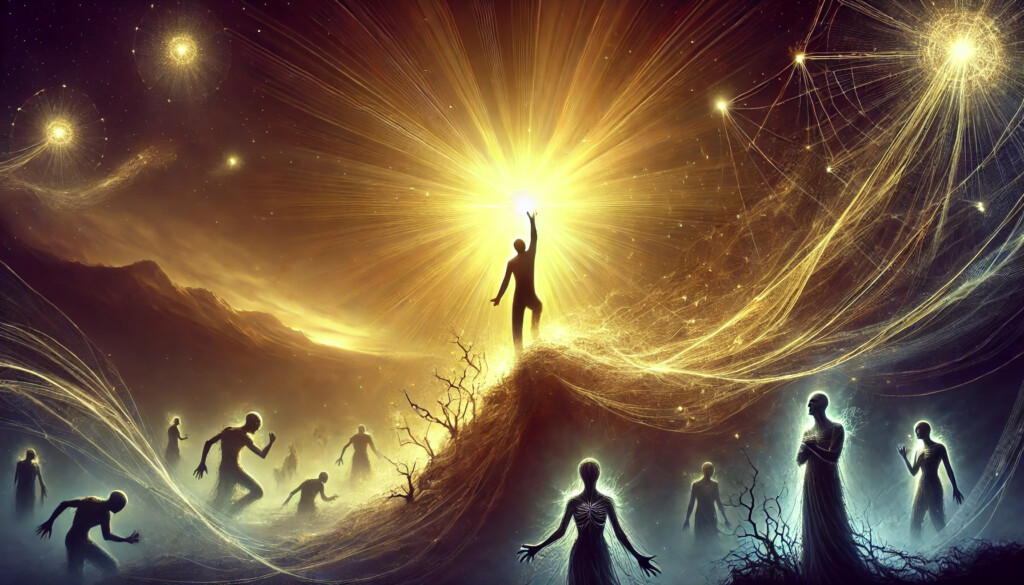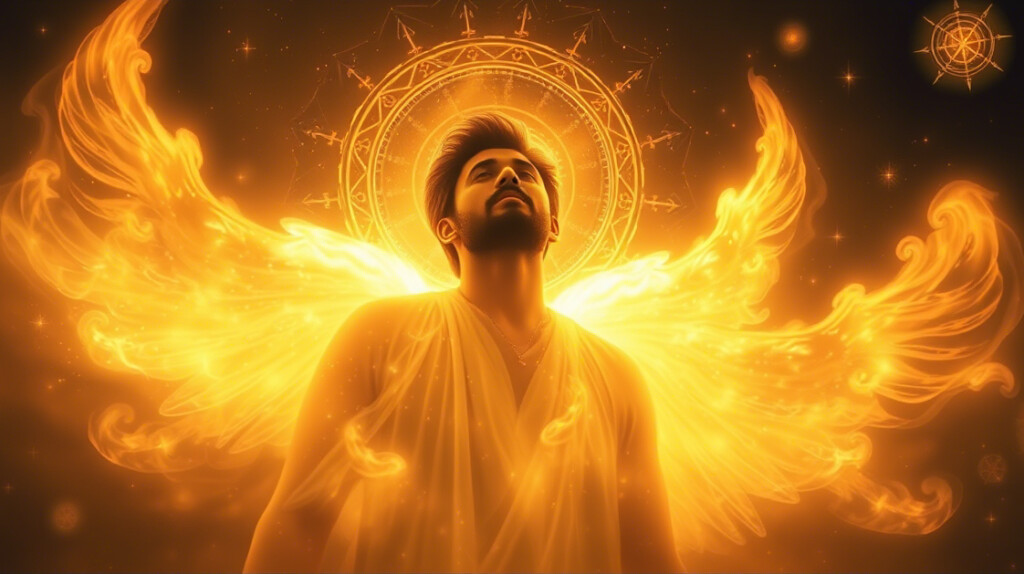Some people cross the boundary of life and death yet return. Is it mere coincidence, or is there an invisible force holding them back?

There are those who fall from great heights but suffer only minor injuries. Some are terminally ill, declared hopeless by doctors, yet they miraculously open their eyes again. There are horrific car crashes where the vehicles are reduced to twisted metal, but the passengers emerge with just a few scratches. These stories repeat across generations, making people wonder: Why do some people simply refuse to die?
Buddhism offers an explanation. Nothing happens by chance. If a life remains tethered to this world, it is because their earthly attachments and karmic forces are not yet resolved; their mission is not yet complete.
Unfinished Earthly Attachments, Unresolved Karma
According to Buddhism, nothing occurs randomly. As taught in the Aṅguttara Nikāya (AN 6.63), the Buddha declared that all sentient beings are the owners of their karma, heirs to their karma, and it is karma that determines their fate.
- Karma is not yet repaid: Humans are born into a vast ocean of karma—accumulated from past lives and the present existence. If past karma remains unresolved, and new karma is still unfolding, the time of death cannot yet arrive.
- Earthly ties are not severed: Buddhist scriptures mention cases where even those gravely ill cannot pass away because something binds them to this world. It could be love, responsibility, or an unfulfilled duty.
- The power of will can prolong life: In some cases, even when doctors predict the final days, patients survive beyond expectations. What keeps them here? A strong will to live, an unwavering belief, and deep emotional attachments to this world.
Many stories recount enlightened Buddhist monks who, after achieving full realization, could choose the moment of their passing because they had fulfilled everything they needed to in this world. On the other hand, those who miraculously escape death often do so because there is still something left undone.
Willpower Holding Onto Life
In 2019, during the height of the COVID-19 pandemic, chaos swept the world. Hospitals were overwhelmed, medical supplies ran short, entire countries were locked down, and those infected were placed in strict isolation. During this time, I had a close friend who contracted COVID.
He was not in the best health. Once infected, his condition deteriorated rapidly—persistent fever, relentless coughing, and increasingly labored breathing. I remember vividly the day he texted me, saying he was being hospitalized. His wife had already passed away from COVID. A week later, his messages grew sparse, then stopped entirely. His family was on edge, but due to strict quarantine rules, no one was allowed to visit. I, too, could do nothing but wait anxiously for news.
Then, one day, the doctor called his family. His voice was solemn:
“His condition is critical. You should prepare yourselves.”
That sentence hit like a thunderclap. No one knew what to do except pray. But then, something no one expected happened.
That very day, when the doctor came to check on him, my friend—weak, struggling for breath, barely conscious—suddenly opened his eyes. He looked at the doctor and, though his voice was frail, he spoke clearly and firmly:
“Doctor, please save me… I have two young children.”
The doctor looked at him, silent for a moment, then nodded.
“Alright. But you must keep fighting.”
And somehow, he truly did.
From that day on, his breathing gradually stabilized. The doctors noted that other patients in similar conditions had succumbed, yet he was different—his health improved at an extraordinary rate. From someone who could barely lift a finger, within a few weeks, he was sitting up, then standing, then slowly walking again.
On the day he was discharged, the doctor simply smiled and said:
“This is one of the most miraculous recoveries I’ve ever seen.”
Later, when I met him again, I asked if he had ever thought he wouldn’t make it. He gave a faint smile:
“Of course. But I couldn’t die. My children still need me.”
So, according to Buddhism, some people escape death not because of luck, nor solely due to medical intervention, but because they simply cannot leave yet. They still have something unfinished, a duty they cannot abandon.
Perhaps, for my friend, his earthly ties still lingered, and that force held him back—even when he had reached the very edge of existence. In his darkest hour, he awakened an inner strength, something Buddhism often refers to as willpower and karmic force.
A Strong Will Can Alter Reality
Life is not merely a series of biological processes. Buddhism has long emphasized: “The mind creates all phenomena” (Cittam Dhammanam). A person’s mental state can change circumstances and even influence their own physical being. Today, science is beginning to explore this idea—willpower is not just a psychological state; it can actively impact the nervous system, immune function, and even the healing process.

People often say “life and death are predestined,” but Buddhism does not see fate as something rigid. Instead, it is a flexible interplay of cause and effect. When a person has a strong enough reason to keep living, their body can trigger extraordinary biochemical mechanisms to sustain life.
Dr. Steve Cole (UCLA) demonstrated in a 2012 Nature Reviews Immunology study that positive emotions reduce inflammation, boost immunity, and enhance survival rates, while stress and despair weaken the body and invite illness. Willpower is not just a mental force—it can physically preserve life.
Sometimes, what keeps a person alive is not medicine, but their belief in their own recovery. Medical science calls this the placebo effect—when a patient believes a pill will heal them, their brain releases natural chemicals that actually aid in healing. Dr. Fabrizio Benedetti (University of Turin, Italy), in a 2008 study published by Oxford University Press, found that when patients believe they are taking painkillers, their brains release endorphins—nature’s own pain-relieving chemicals.
Modern science is only beginning to touch upon what sages and enlightened masters have understood for thousands of years. Those who seemingly escape death—was it because karma and destiny had not yet sealed their fate, or did they themselves choose their own path?
